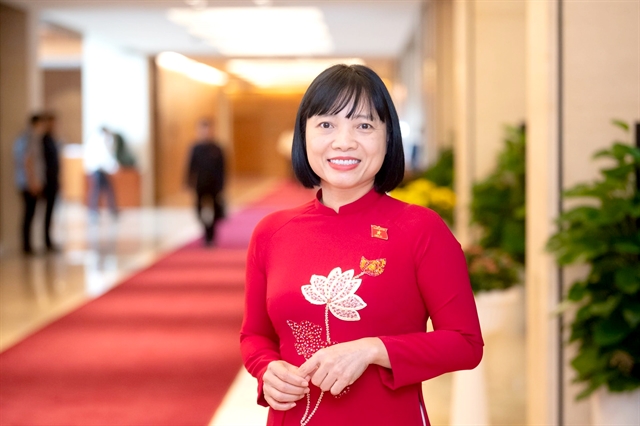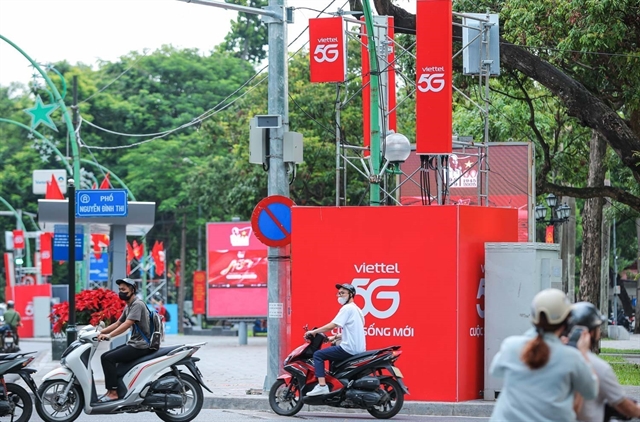 Economy
Economy
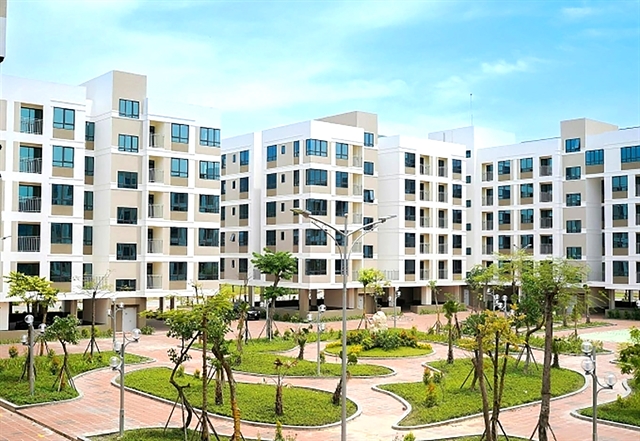
Deputy Prime Minister Trương Hoà Bình has urged the Central Highlands region to build a Vietnamese coffee brand capable of competing with rivals at home and abroad.
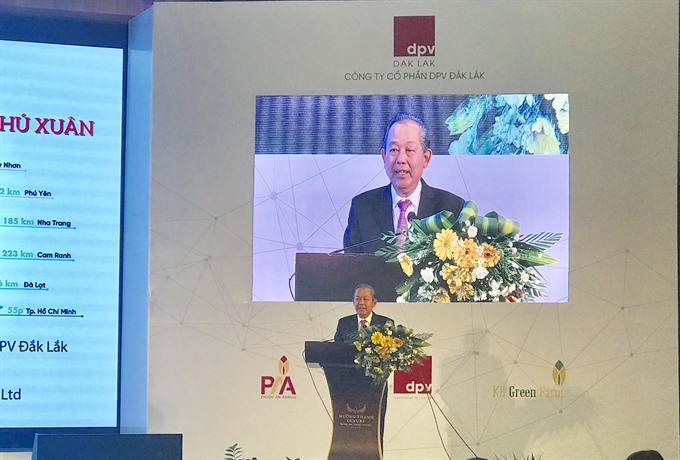 |
| Deputy Prime Minister Trương Hoà Bình speaks at the 2019 Đắk Lắk investment promotion conference held on March 10 in the province. VNS Photo Việt Dũng |
Xuân Hiệp & Việt Dũng
ĐẮK LẮK — Deputy Prime Minister Trương Hoà Bình has urged the Central Highlands region to build a Vietnamese coffee brand capable of competing with rivals at home and abroad.
Speaking at the opening ceremony of the seventh Buôn Ma Thuột Coffee Festival on Saturday night, Bình said the region should aim to become a “world famous coffee destination”.
The area is known for its basaltic land with huge rubber and coffee plantations, he noted. “The Central Highlands region has great advantages and potential for coffee plantations and exports.”
Đắk Lắk Province’s coffee products, with the geographical indication “Buôn Ma Thuột Coffee”, are sold in some 65 countries and territories worldwide, making the largest contribution to Việt Nam’s coffee exports.
Bình said that Đắk Lắk and other provinces with coffee growing areas should ensure sustainable production by promoting biodiversity, organic agriculture and cultural values.
A sustainable strategy to preserve the identity of local ethnic groups, especially the gong culture, was also needed, he said.
“The Buôn Ma Thuột coffee festival plays a major role in promoting the branding of Buôn Ma Thuột and Việt Nam’s coffee to the international market,” he added.
Việt Nam’s coffee export turnover reached nearly 1.9 million tonnes, earning $3.5 billion last year.
Bình said it was vital to restructure the coffee sector, focusing on large-scale and concentrated production, as well as private investment.
Đắk Lắk should also promote the use of advanced technology to increase productivity and quality, reduce costs, and adapt to climate change.
“Việt Nam’s specialty coffee should be encouraged to develop high-quality coffee with special flavours, meeting international standards with higher coffee value as well as profits for farmers.”
Miss Universe Việt Nam 2017 H’Hen Niê, the media ambassador for the festival, will participate in major programmes at the week-long festival.
The event includes an exhibition on global coffee history, a street festival, a Vietnamese specialty coffee quality competition, free coffee tasting, a Buôn Đôn elephant festival, and an international paragliding contest.
Themed “Quintessence of the Great Forest”, the biennial festival honours domestic coffee growers, processors and traders, and encourages the community to develop a coffee culture.
The event commemorates the 44th anniversary of the Buôn Ma Thuột Victory of March 10, 1975.
Đắk Lắk Province boasts the country’s largest coffee-growing area, with a total area of about 204,000 hectares, accounting for 36 per cent of the country’s total output.
Coffee was first cultivated in Việt Nam in 1857. The country now exports 1.8 million tonnes of coffee beans, earning $3.2 billion per year. The country is the world’s second largest coffee exporter, after Brazil.
$3b to be invested in Đắk Lắk
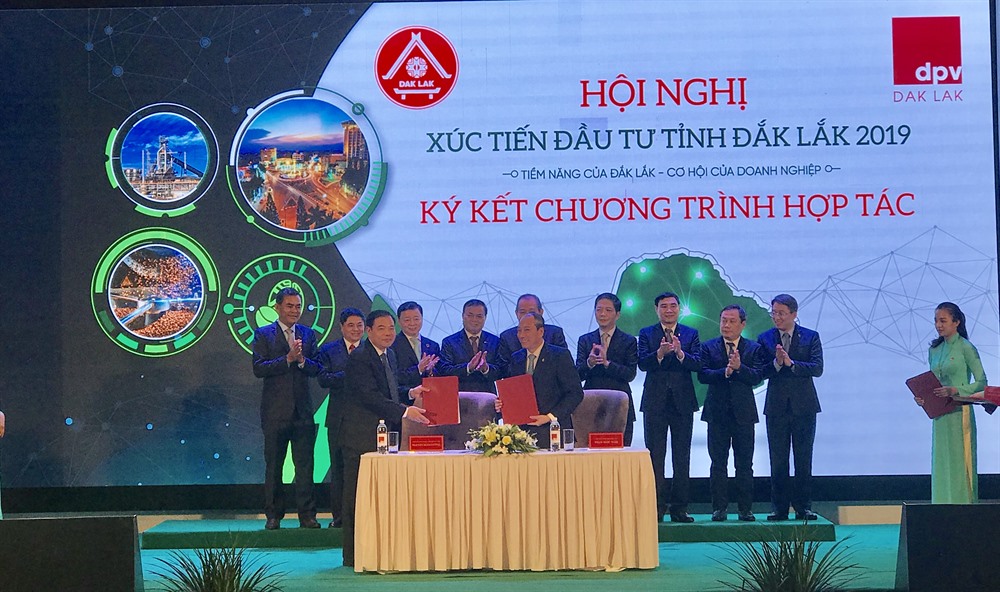 |
| Nineteen MoUs for investment projects in Đắk Lắk Province were signed during the 2019 Đắk Lắk investment promotion conference on March 10. VNS Photo Việt Dũng |
On Sunday, Đắk Lắk officials called for local and foreign investment in agriculture, processing industry, infrastructure for tourism and urban areas, renewable energy, and education, among others.
Speaking at the 2019 Đắk Lắk investment promotion conference, Deputy Prime Minister Trương Hoà Bình said investors had signed 19 MoUs to invest in Đắk Lắk, and registered to invest in 13 projects worth a total of more than VNĐ71 trillion ($3.06 billion) in the province.
Bình said the province needed to invest in high-value industries and traditional crafts, as well as renewable energy and tourism.
Rural areas, as well as the agriculture and forestry sectors, should use advanced technology and seek more investment as well, he added.
Nguyễn Xuân Cường, minister of agriculture and rural development, said farmers were important, but assistance from the Government and businesses was crucial.
“More focus needs to be placed on trade facilitation and marketing to develop the coffee industry,” he noted.
Phạm Ngọc Nghị, chairman of Đắk Lắk Province People’s Committee, said local authorities were offering favourable policies to provide optimal conditions for investors.
The province would also promote administrative reform with a focus on slashing time for fulfilling procedures and implementing a “one-stop shop” mechanism, he said.
In addition, the province would focus on improving infrastructure and the quality of human resources, and help investors access financial packages to develop their projects.
“The province will also work with the Ministry of Foreign Affairs and other agencies to receive up-to-date information on its partners, ultimately optimising the promotion of investments,” he said.
Vũ Đại Thắng, deputy minister of planning and investment, said that Đắk Lắk Province should organise regular meetings with large domestic and international companies to introduce local potential.
“Top priority should also be given to improving training for human resources, and creating conditions in which businesses feel secure about investing,” he added.
Dr Trần Đình Thiên, member of the PM’s economic advisory group, and former director of Việt Nam Economics Institute, said to attract more investment, the role of the central government in policies and incentives was essential to help localities.
At the conference, Đắk Lắk Province signed MoUs with the ministries of Agriculture and Rural Development, Industry and Trade, and Planning and Investment to develop the brands of Buôn Ma Thuột coffee and avocado, and sustainable agriculture.
Covering 13,123sq. km, Đắk Lắk Province with a population of 1.9 million has an airport and important national highways passing through it.
With nearly 540,000ha of agricultural land, the province grows high-value commercial crops, such as coffee, rubber, and pepper, suitable for developing processing industries.
In addition, livestock and poultry farming have developed rapidly in the province, providing investors a good foundation for industrial-scale animal breeding, feed production and animal and poultry meat processing plants.
The province also has potential in minerals such as feldspar, lead, sand and gravel for construction. It has an abundant workforce of around 1,100,000 workers, with more than 400,000 of them trained. — VNS

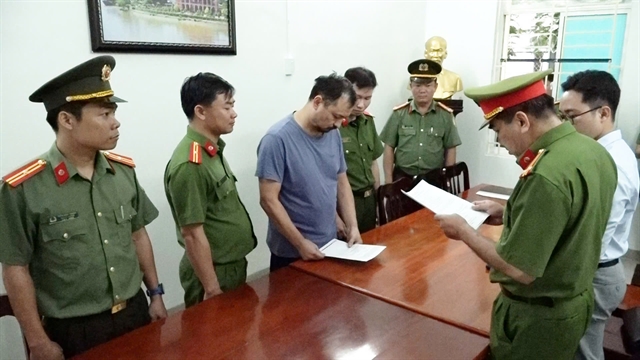

.jpg)
